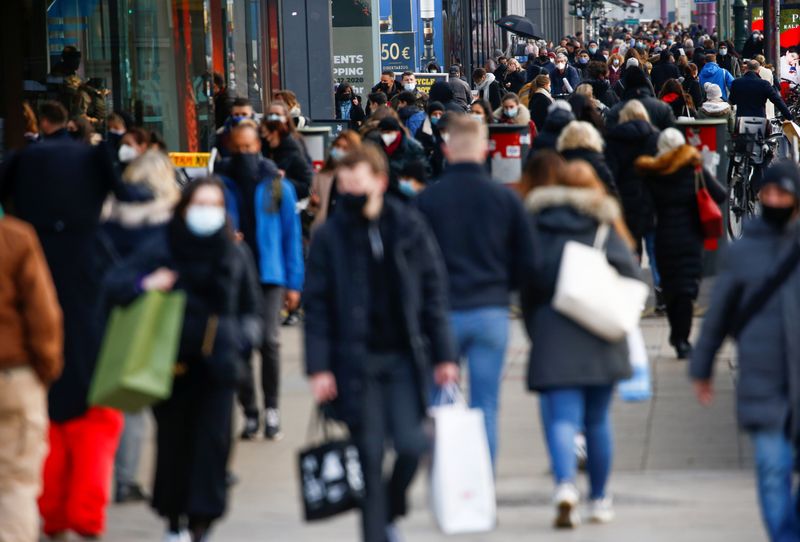BERLIN (Reuters) - The German economy was in recession in early 2023 after household spending in Europe's economic engine finally succumbed to the pressure of high inflation.
Gross domestic product fell by 0.3% in the first quarter of the year when adjusted for price and calendar effects, a second estimate from the statistics office showed on Thursday. This follows a decline of 0.5% in the fourth quarter of 2022. A recession is commonly defined as two successive quarters of contraction.
German GDP data showed "surprisingly negative signals," Finance Minister Christian Lindner said on Thursday. He added that comparing Germany with other highly developed economies, the economy was losing potential for growth.
"I don't want Germany to play in a league in which we have to relegate ourselves to the last positions," he said, referring to the forecasts of the International Monetary Fund, which predicted a recession in 2023 only in Germany and Britain among European countries.
Robert Habeck, Germany's economy minister, said his nation's previous high dependency on Russia for energy supply led to the recession but the growth forecasts were much bleaker.
"We're fighting our way out of this crisis," Habeck said at an event in Berlin on Thursday.
"Under the weight of immense inflation, the German consumer has fallen to his knees, dragging the entire economy down with him," said Andreas Scheuerle, an analyst at DekaBank.
Household consumption was down 1.2% quarter on quarter after price, seasonal and calendar adjustments. Government spending also decreased significantly, by 4.9%, on the quarter.
"The warm winter weather, a rebound in industrial activity, helped by the Chinese reopening, and an easing of supply chain frictions were not enough to get the economy out of the recessionary danger zone," ING global head of macro Carsten Brzeski said.
By contrast, investment was up in the first three months of the year, following a weak second half of 2022. Investment in machinery and equipment increased by 3.2% compared with the previous quarter, while investment in construction went up 3.9% on quarter.
There were also positive contributions from trade. Exports rose 0.4%, while imports fell 0.9%.
"The massive rise in energy prices took its toll in the winter half-year," Commerzbank (ETR:CBKG) chief economist Joerg Kraemer said.
A recession could not be avoided and now the question is whether there will be any recovery in the second half of the year.
"Looking beyond the first quarter, the optimism at the start of the year seems to have given way to more of a sense of reality," Brzeski said.
A drop in purchasing power, thinned-out industrial order books, aggressive monetary policy tightening and the expected slowdown of the U.S. economy all argue in favour of weak economic activity.

Following Wednesday's decline in the Ifo business climate, all key leading indicators in the manufacturing sector are now falling, Kraemer said.
The German Bundesbank, however, expects the economy to grow modestly in the second quarter as a rebound in industry more than offsets stagnating household consumption and a slump in construction, according to a monthly economy report published on Wednesday.